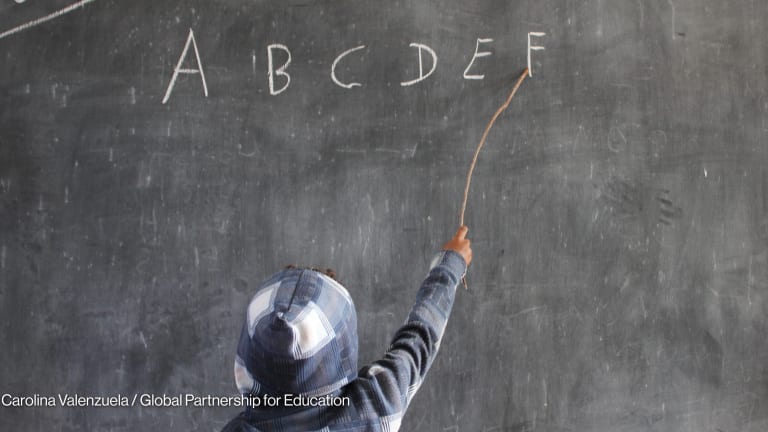
With current trends, it will be almost 100 years before all girls in sub-Saharan Africa can make it through secondary school. That is shocking in itself, but all the more so because universal access to secondary education is a target in the global development goals that governments committed to meeting by 2030. This time last year, I celebrated the ambition of those goals. A year on, with the U.N. General Assembly meeting once more, I struggle to see evidence that enough is being been done to ensure those promises will be met.
Many of us last year were especially pleased to see the position of women and girls explicitly recognized in the global goals. We know that for every year of education a girl completes, her future income increases by more than 10 percent. We also know that women’s income is more likely to be invested in the wellbeing of future generations. Yet, by the end of 2015, fewer than half of the world’s countries had achieved gender parity in secondary school enrolment, with one in five adolescent girls out of school.
The global development goals offer an opportunity to transform the lives of millions across the world. But without much greater urgency, it is likely that chance will be missed. An analysis by the Overseas Development Institute of the goals, looking at one key target per goal, shows that, without a global push to accelerate change, not one of those targets will be met by 2030.
For most, we won’t even get halfway there, and for five of them, the current trends are moving in the wrong direction entirely.
One area where current trends promise little to no progress is ending child marriage, a violation that denies 15 million girls their childhood and the opportunity to reach their full potential. At current rates, according to the ODI’s analysis, child marriages will not be eliminated until 2080. If we’re going to meet the target by 2030, we will need to accelerate progress eightfold.
If we fail, we not only abandon millions of girls today, but we betray millions more tomorrow. Failure to end child marriage will make it impossible to achieve the target on educational participation, which will in turn undermine our ability to reduce income inequality in the poorest countries. Unless we pursue vigorously all of the targets we have set for ourselves, we risk missing many more: How can we hope to secure universal secondary education when a young girl in South Sudan is three times more likely to die in pregnancy or childbirth than to complete eighth grade?
Yet, despite the challenges, I remain optimistic about our capacity to achieve real progress. It is not yet too late, even though the clock is ticking. Change happens when the world rises up against injustice, when we come together to demand action. Through Plan International’s “Because I am a Girl” initiative, we have helped to create a movement that values and promotes girls’ rights; those aims are reflected in the global development goals. But we need now to see governments take concrete steps to turn their words into action.
There is no time to waste. At Plan International we see all too clearly the appalling reality of millions of girls’ lives. Governments need now to establish clear plans for overcoming the specific barriers they face in meeting the global development goals; realistic programs, properly resourced, that can meet the challenge. Civil society needs to help design and deliver practical action — action that responds to the lived experience of girls around the world — and to build new coalitions that give girls the confidence and skills to make change for themselves.
But we also need to stay angry. The global goals should make us more impatient for change, not less. We should be ready to shine a light on the progress made by institutions and governments, and to highlight delays and half-measures. Critically, we all can stand in solidarity with those incredible young people who challenge the discrimination and disadvantage they face, often at significant personal risk.
Rightly, we have set ourselves demanding targets and given ourselves just a few years in which to achieve them. Our ambition demands an ambitious response: from national governments, from civil society and from supranational bodies, not least the U.N. For every day’s inaction, the scale of the challenge gets larger. Time is not a luxury to be frittered away — 2030 will be with us sooner than we think.
Join the Devex community and access more in-depth analysis, breaking news and business advice — and a host of other services — on international development, humanitarian aid and global health.








